Problem solving is in everyone’s interest
12-03-19
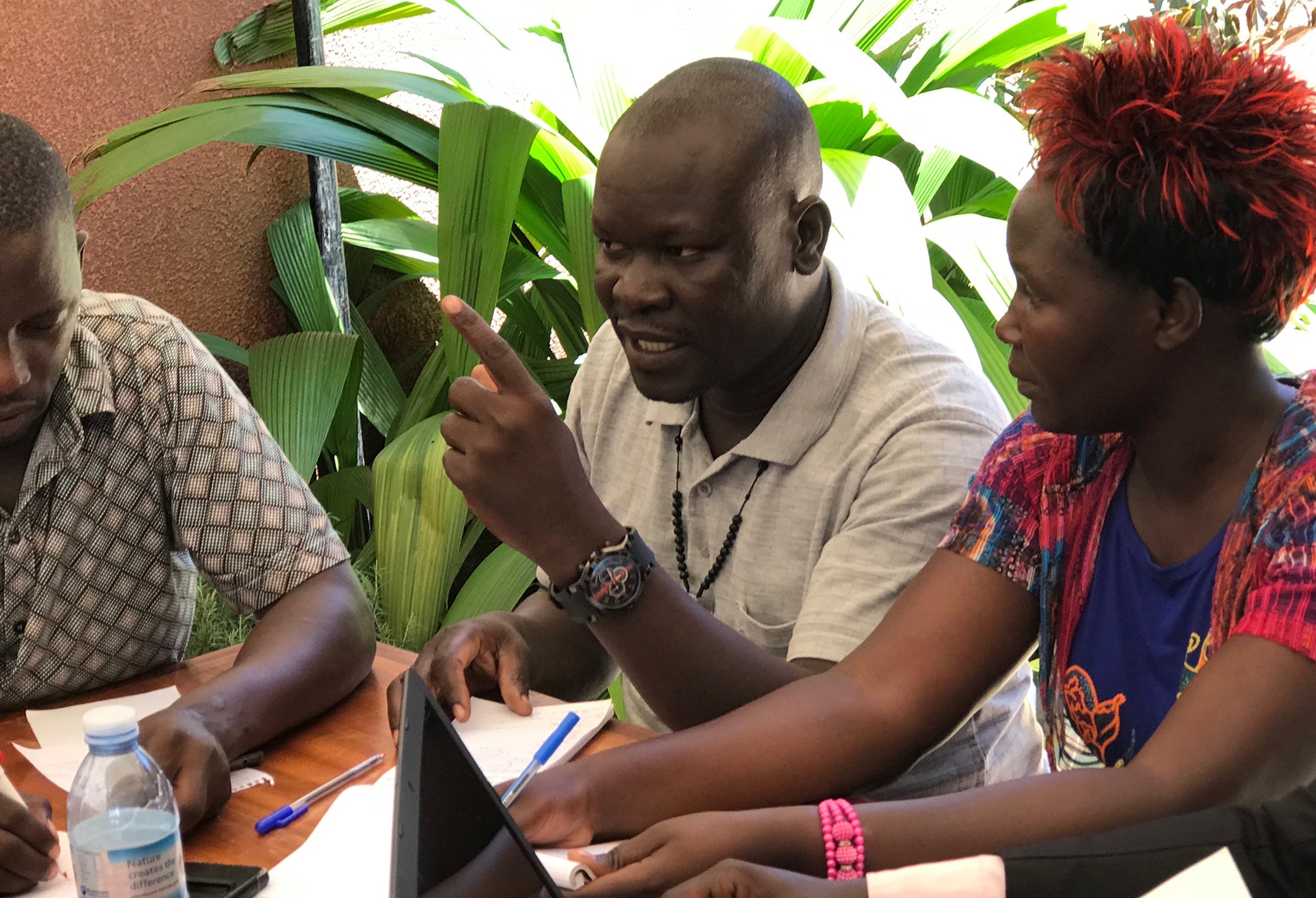
‘For Community Transformation’ is Gulu University’s motto. The Problem Based Learning method – a core part of the Building Stronger Universities collaboration between Gulu University and Aalborg University – is exactly the right fit for upholding the university’s motto.
By Vibeke Quaade, Gulu
Some have come from Lira and Adjumani, some from Mbarara and Fort Portal. Some are bankers, others are accountants or programme officers. The 62 Master’s students gathered at Hotel Pearl Afrique for a training course in Problem Based Learning are all from the Faculty of Business and Development at Gulu University but their backgrounds could hardly be more diverse.
What they have in common is a craving for new knowledge and the ambition to take a professional leap forward. They want to upgrade their skills and competencies – and get a Master’s degree as documentation.
As Ms Judith Awacorach, Deputy Coordinator, Building Stronger Universities at Gulu University says,
Our Master’s students are professionals with day jobs and limited time. It makes them very focused and motivated. They know what they want and they go for it.
So here they are, well into their studies, which they mainly have to do at home. On a day-to-day basis, they must get on with their jobs and they only attend classes at the university at the weekend, which they do for 5 semesters, (the equivalent of two and half academic years) to complete their course.
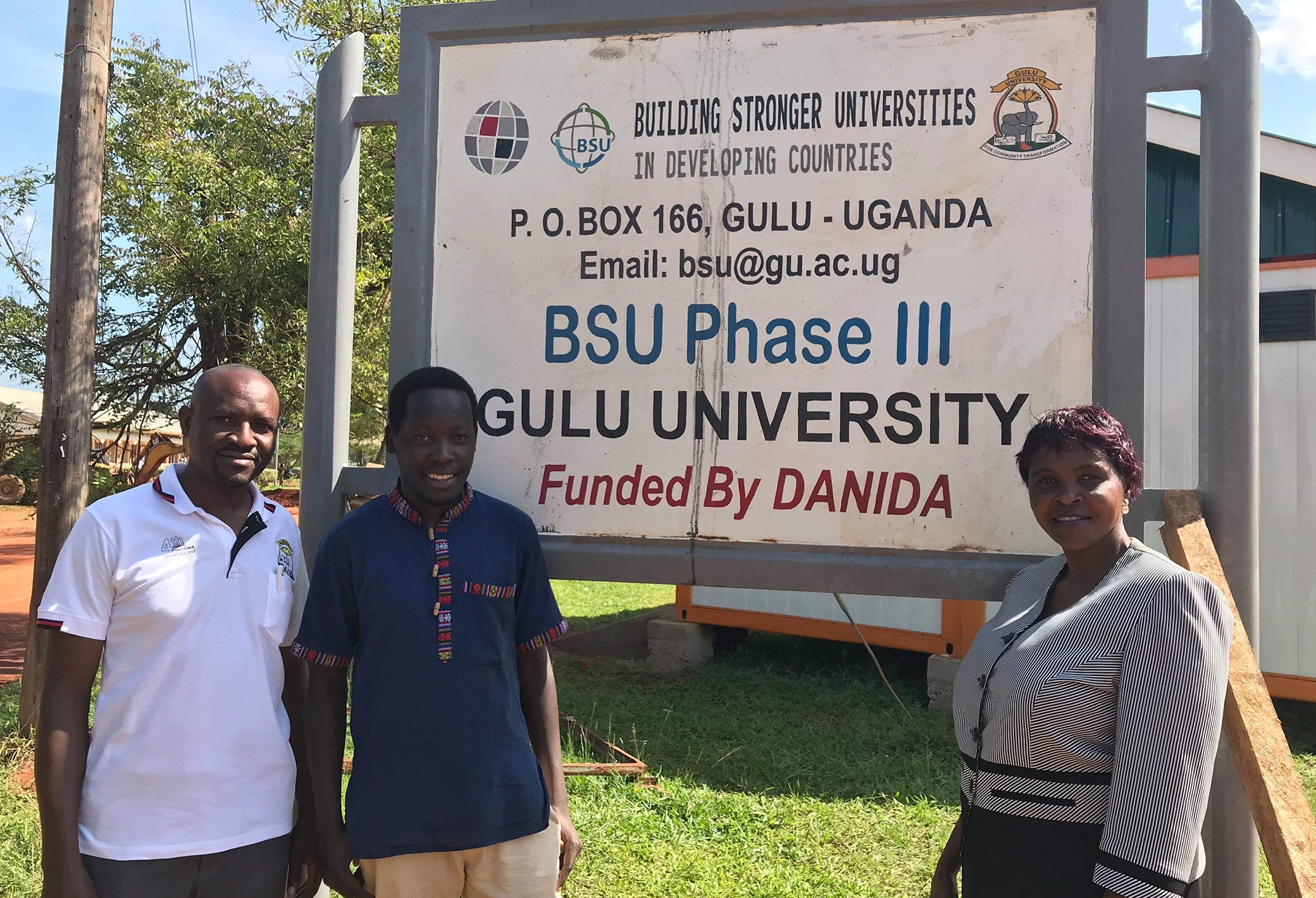
Sometimes, though, they also travel to Gulu for special activities, one of them being the five day course in Problem Based Learning at Hotel Pearl Afrique. It is organised as part of the Building Stronger Universities collaboration between Gulu University and Aalborg University. The two Danish professors, Ms Iben Jensen and Ms Inger Lassen, from Aalborg University are facilitating the training course together with Ms Agatha Alidri and her colleagues from Gulu.
Problem Based Learning
Problem Based Learning is a pedagogical method that gives students the opportunity to learn about a subject through the experience of solving a problem with no predetermined solution. In addition, during the training course, the method will prepare the students to identify and formulate problem statements for their Master’s thesis and give them tools to strengthen their research and analytical skills.
Right now, they are gathered in groups of eight to ten students, and they are presenting and discussing a case based on the research they did in the field yesterday.
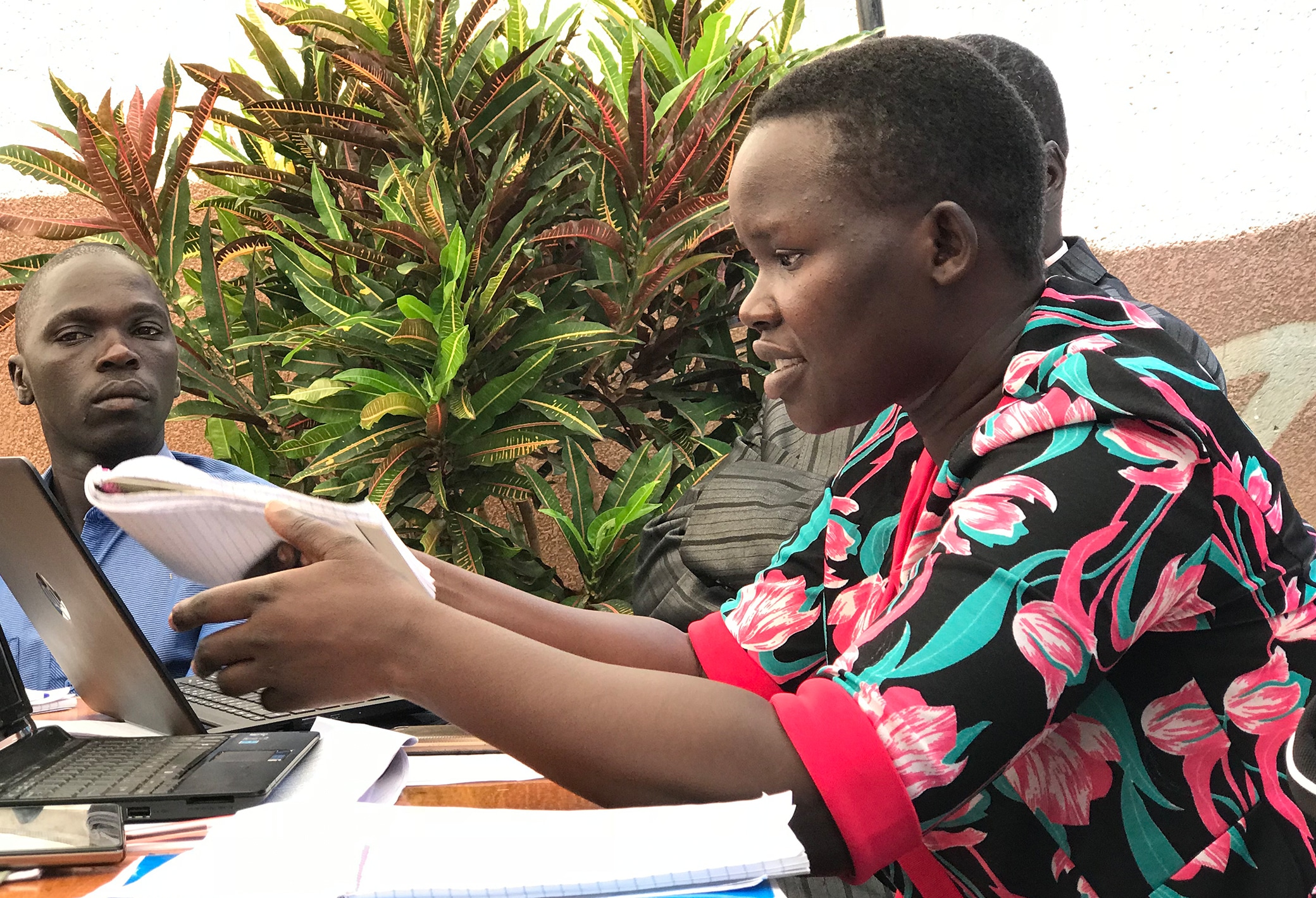
One of the groups is presenting their case about community tourism. The group visited a community that lives close to Murchison Falls National Park and the Acholi Culture and Tourism Centre. When the centre first opened, the community members were told that they would benefit from it and that it would improve their livelihoods. It turns out that they feel that they have not benefited at all so far.
The community members were quite upset. They were eager to answer our questions in the hope that we and the university may be able to help them solve the problem, says Mr Walter Odokorwot, Community Conservation Warden, Uganda Wild Life Authority.
Gulu University for community transformation
‘For Community Transformation’ is Gulu University’s motto and enhancing transformation via community engagement is precisely what the organisers of the training course want to do. We let the students develop real life cases based on community challenges, and they seem to find it very meaningful to use this method for real-life problem solving, says Ms Iben Jensen, Aalborg University.
It is about problem solving in everyone’s interest. When the students engage with external organizations and stakeholders it enables them to work with issues both relevant to their profession and to the surrounding community, adds Ms Inger Lassen.
It works
It is the second time the Problem Based Learning training course has been offered to a batch of Master’s students and the method does indeed seem to uphold the university’s motto.
Ms Sarah Alele is one of the students who participated in the first training in 2016. Later on, in 2017, she became the Regional Supervisor of Posta Uganda.
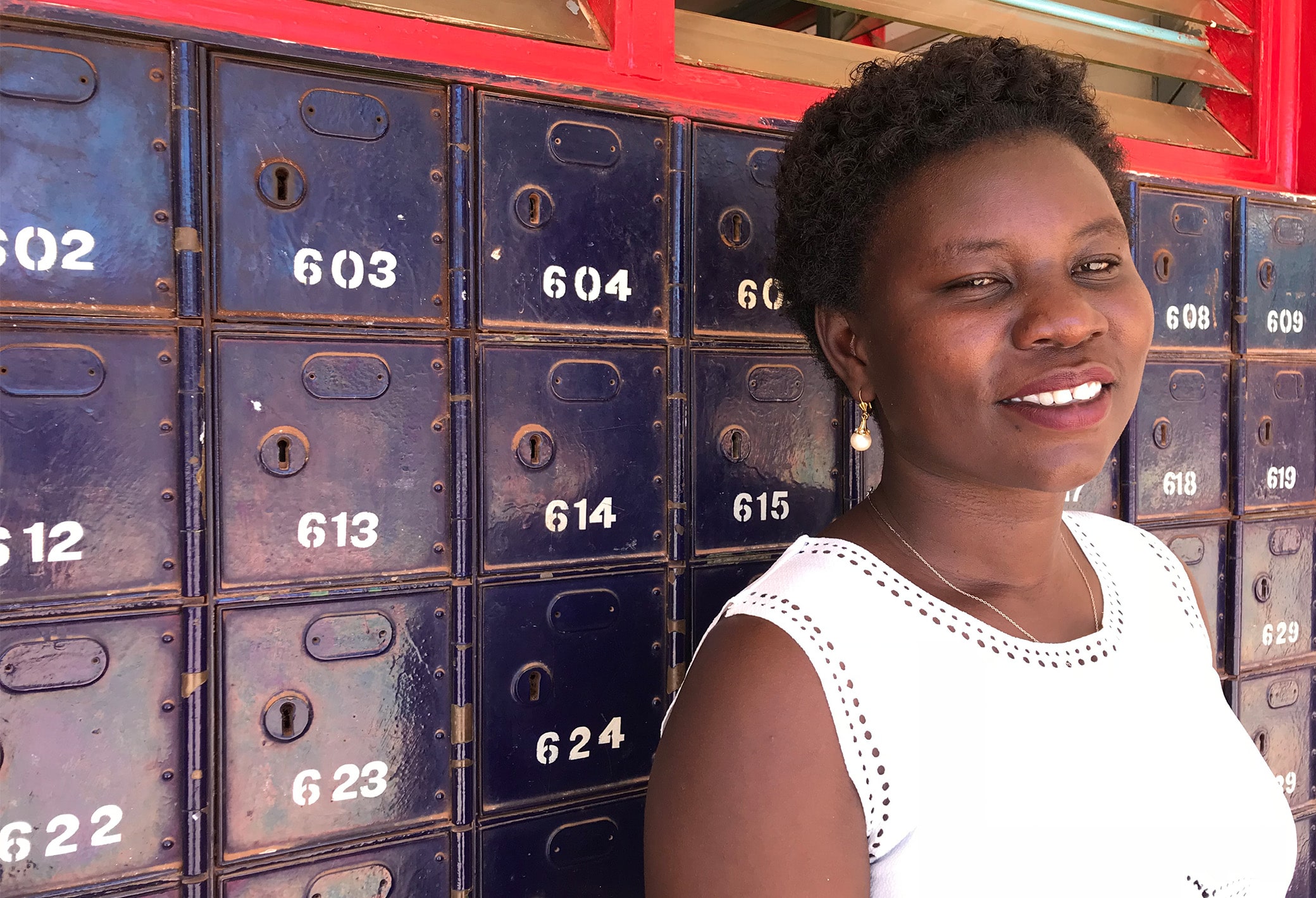
In this position, she has increased the financial revenue, initiated collaboration with external partners to host a CSR project benefiting youth, and has given the offices a facelift by giving them some fresh coats of paint. She attributes her achievements to the methodologies she learned while working on her Master’s thesis, using problem based learning methods.
While working on my thesis I used the problem based learning method. In addition to helping me finalize on time, the method gave me a deep understanding of how many resources, financial and human, that there are in any community, whether it be an office or institution or a village. It is a matter of finding out what is there and putting it to use, she says.
Mr Samuel Woko, Principal at Ludia Nursery and Primary School, Gulu, also cites the problem based learning method as a key factor in his professional achievements, especially the stakeholder-inclusive approach to problem solving.
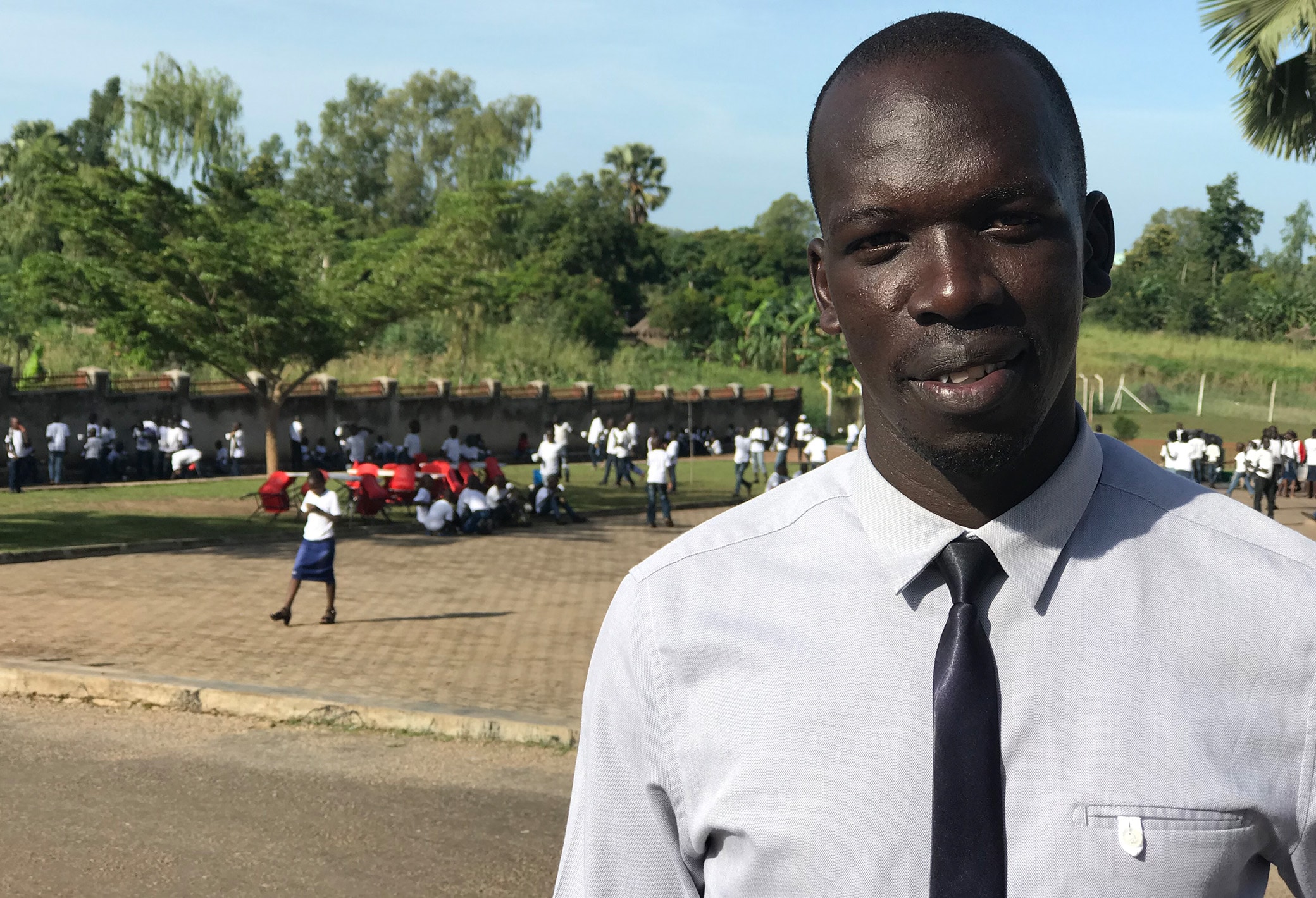
Before the course, Mr Samuel Woko was not part of the top management of the school. He got the position in 2017. He now oversees three branches with a total of 600 pupils from P1-P7 and uses the method to directly involve the pupils in problem solving.
One has to talk to the students to fully understand them and find a way out of the challenges they face. If you get viewpoints from different sides and listen to what they say, you will find that the pupils quite often have thought of a variety of solutions, says Mr Samuel Woko who attended the training course in 2016 as part of his Master’s in Business Administration.
Diversity is an advantage
Ms Judith Awacorach agrees. The diversity of viewpoints helps one get into the core of the issues because it makes it possible to see them from different angles. She believes that the geographical and professional range in the backgrounds of the group of Master’s students is an advantage.
It is difficult to have preconceived solutions to a problem you know little about. So we actively use the diversity of the group of Master’s students to raise questions and train their analytical skills, she says.
The next Problem Based Learning training under Building Stronger Universities will take place later this year.
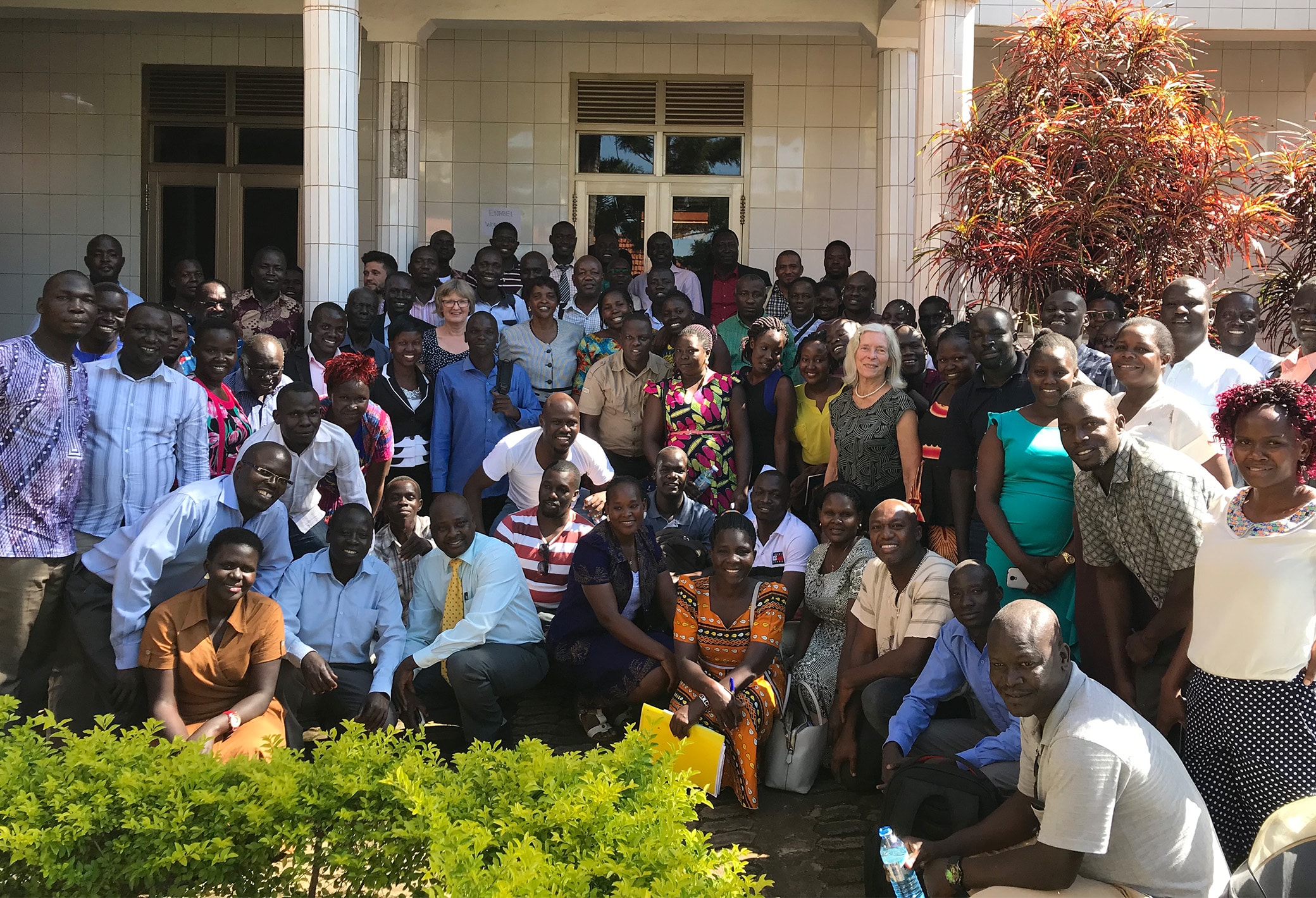
Problem Based Learning as a pedagogical method is a component of the Building Stronger Universities collaboration between Gulu University and Aalborg University supported by Danida and administrated by Danida Fellowship Centre. The training course in October 2018 was organized in close collaboration between Gulu University and Aalborg University. The coordinators were, Ms Agatha Alidri, Gulu University, Ms Judith Awacorach, Gulu University, Mr David Ross Olanya, Gulu University, Mr Geoffrey Tabo, Gulu University, Mr Hanan Lassen Zakaria, Aalborg University, Ms Iben Jensen, Aalborg University and Ms Inger Lassen, Aalborg University.
Go back to our stories